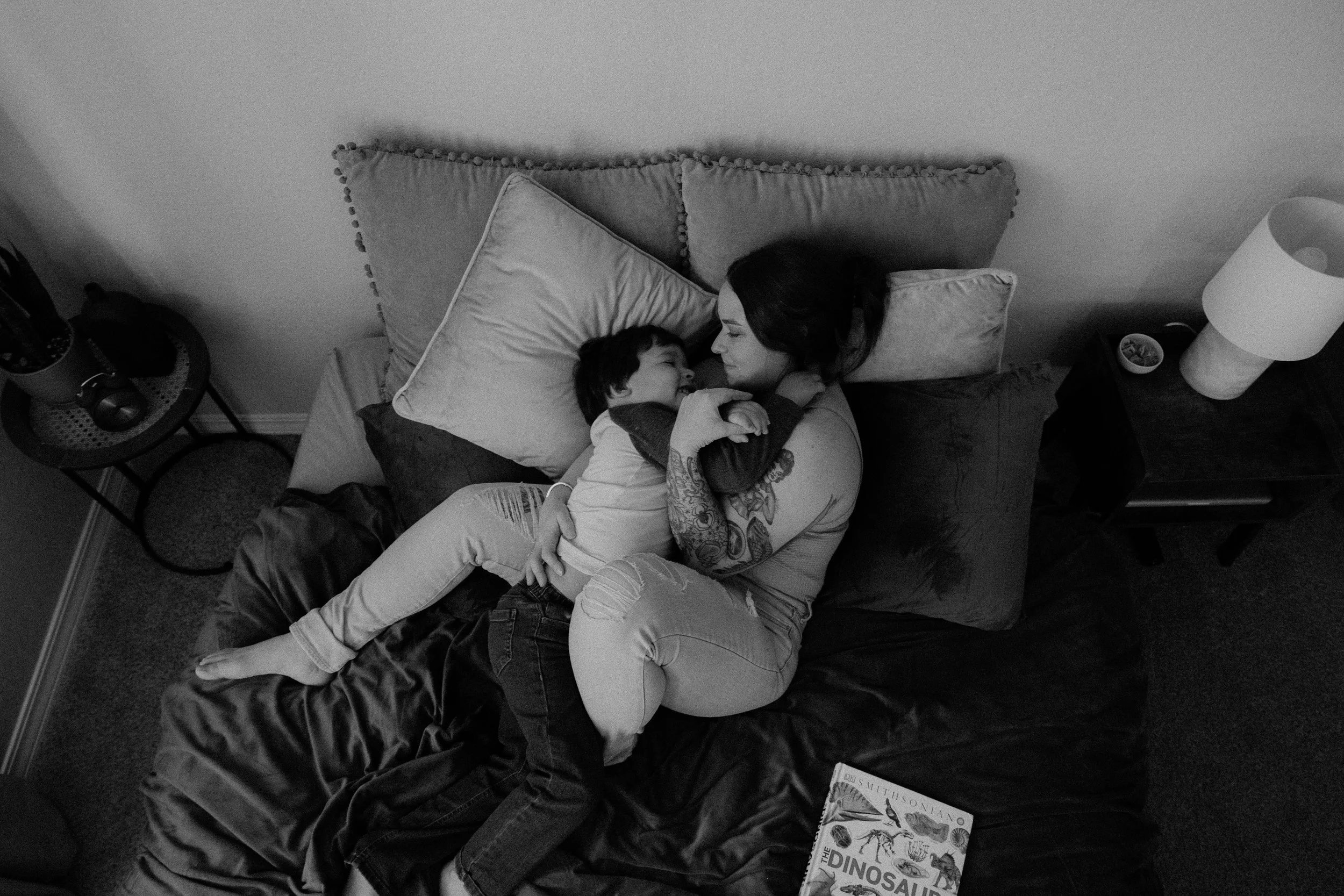Motherhood Sleep Deprivation: Why It Feels So Hard & How Mindfulness Helps
Photo by Andres Molina
Sleep is one of the first things to shift in motherhood. Whether it started in pregnancy or once your baby arrived earth-side, the lack of sleep was perhaps prominent for you. You may be waking through the night to feed your newborn, soothing a toddler or tending to a child’s bad dreams. The world of broken rest can quickly become part of your rhythm.
What Sleep Deprivation does to the brain?
Did you know that depriving a victim of sleep is a form of torture? Yep - science back this up! Research shows us that when we are sleep-deprived, the brains emotional centre - the amygdala - becomes more reactive. This means that everyday stressors can feel heavier and more overwhelming —and we are literally running on a short fuse. At the same time, the prefrontal cortex - the part of the brain that helps regulate and calm emotions - has less influence.
It is important to remember you are not failing or “losing patience”. It is pure biology. Without rest, you brains regulation system is under strain. And without the control of changing undisturbed sleep, we need other ways to support ourselves.
Why this matters for Mothers.
In motherhood, our emotional state not only affects us but also our whole family’s regulation. It shapes our connection with our children and their own nervous systems. Babies and young children co-regulate with us and literally borrow our nervous systems for their first years of life. When we are tired, our own system is more reactive, making it harder to offer that grounded presence they rely on for safety and stability.
This creates a feedback loop - where our exhaustion impacts our ability to regulate, which can affect our child’s regulation, in-turn making harder days that much more harder.
How can Mindfulness help?
I acknowledge we can’t simply control our sleep, but we can nourish our nervous system in other ways which can allow rest to ourselves and regulation to our whole family.
𖦹 Yoga Nidra - often referred to as "yogic sleep". According to Swami Satyananda Saraswati, a pioneer of Yoga Nidra, the practice brings about deep relaxation through a guided meditation that invites the body into the delta brainwave state, while the mind remains gently aware. It is a state of stillness between wakefulness and sleep—a nourishing place where your nervous system can deeply trust and reset. Nidra is practiced lying down, making it especially supportive of mothers. Read more about this here in my separate blog post ‘The Gift Of Restorative Yoga Nidra’.
𖦹 Mindful Pauses - taking a pause with a deep breath in and a deeper breath out before we pickup our children, respond or continue with our tasks, can make a huge difference. This pause can be all that we need to break the loop and allow us to choose a more intentional response.
Other things we can do to help support Sleep.
𖦹 Sunlight within 1 hour of waking - science shows us that getting sunlight on our faces and into our eyes within the first hour of waking in the morning for both ourselves and our little ones, assists in regulating our circadian rhythm and with the balance of melatonin and serotonin levels.
𖦹 Caffeine curfew - this one may break hearts, but abstaining from coffee 8 hours before bedtime helps to reduce overstimulation by not producing caffeine-induced cortisol and sleep-reducing hormones.
𖦹 Blocking Blue Light - avoiding screens 60-90 minutes before bedtime helps to regulate melatonin which is crucial in our bodies ability to sleep.
So many things can help support our bodies rhythm for sleep and many of our daily choices may be impacting the quality of sleep we do manage to get. Meaning a slight alteration can make such a big difference in the amount of deep sleep we are getting each night.
Not everyone of these things may be achievable, but choosing one or some that work for you—is a good place to start.
A Loving Reminder.
You are not alone. You are not broken. You are not a bad mum. Sleep deprivation is really hard and the science shows us how it affects our biology that is out of our immediate control. Your brain and body is working without fewer resources and it is okay that you are doing your best. Offering yourself compassion, along with small pockets of mindful rest can help replenish your reserves and reconnect you to the steadiness within yourself.

